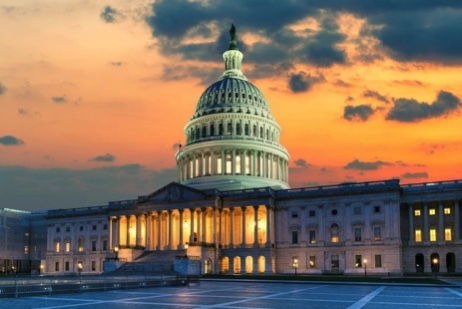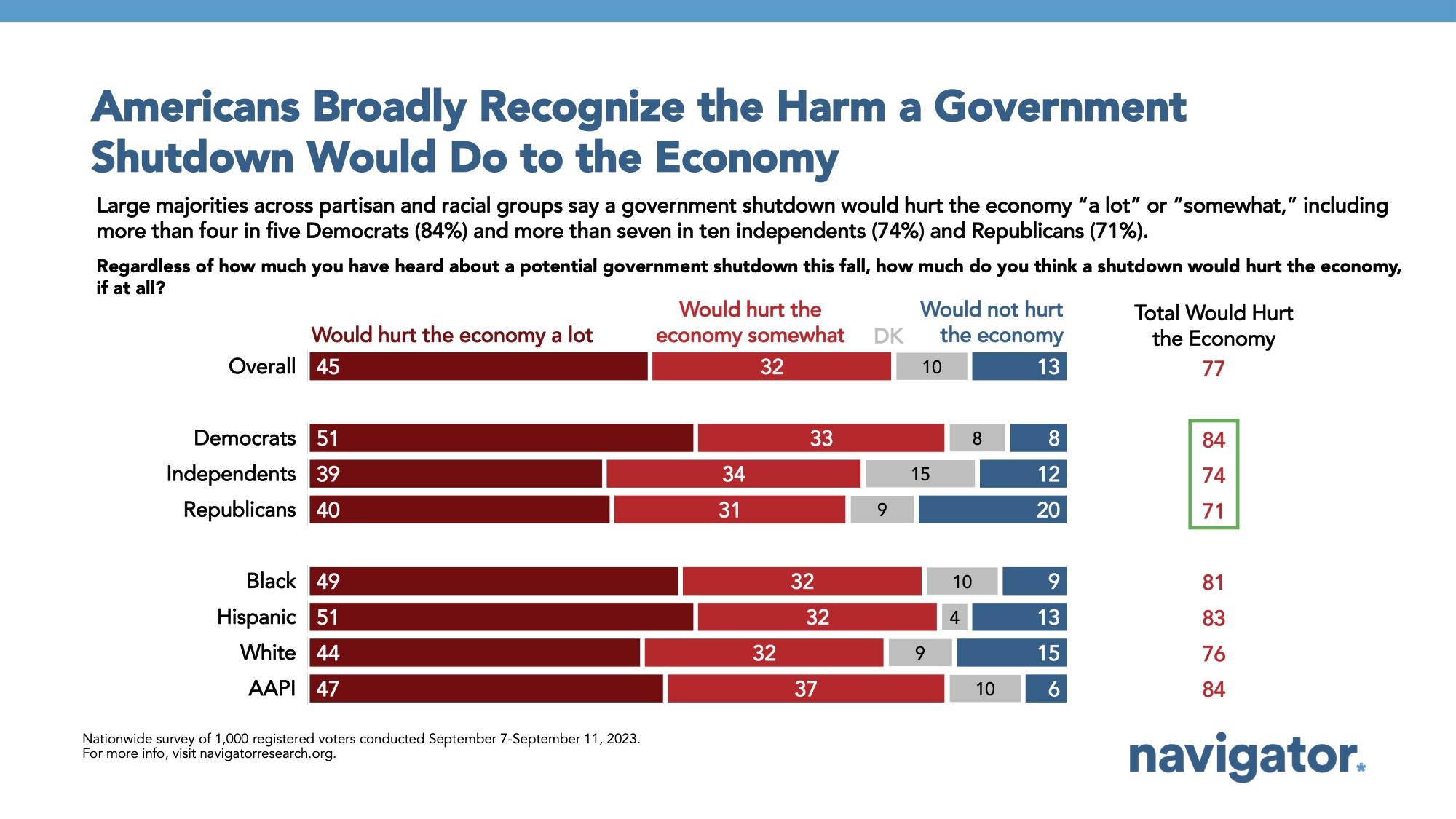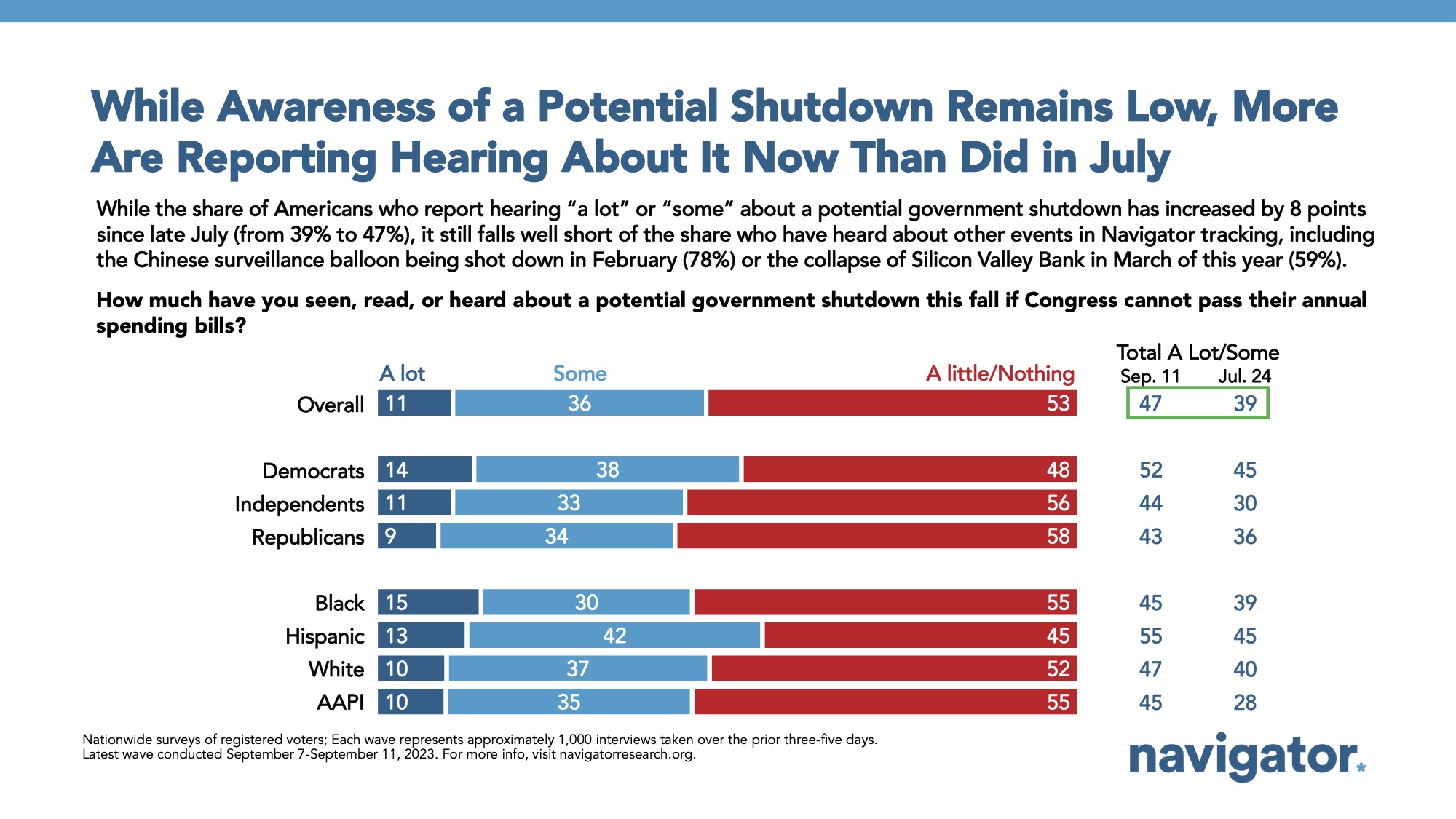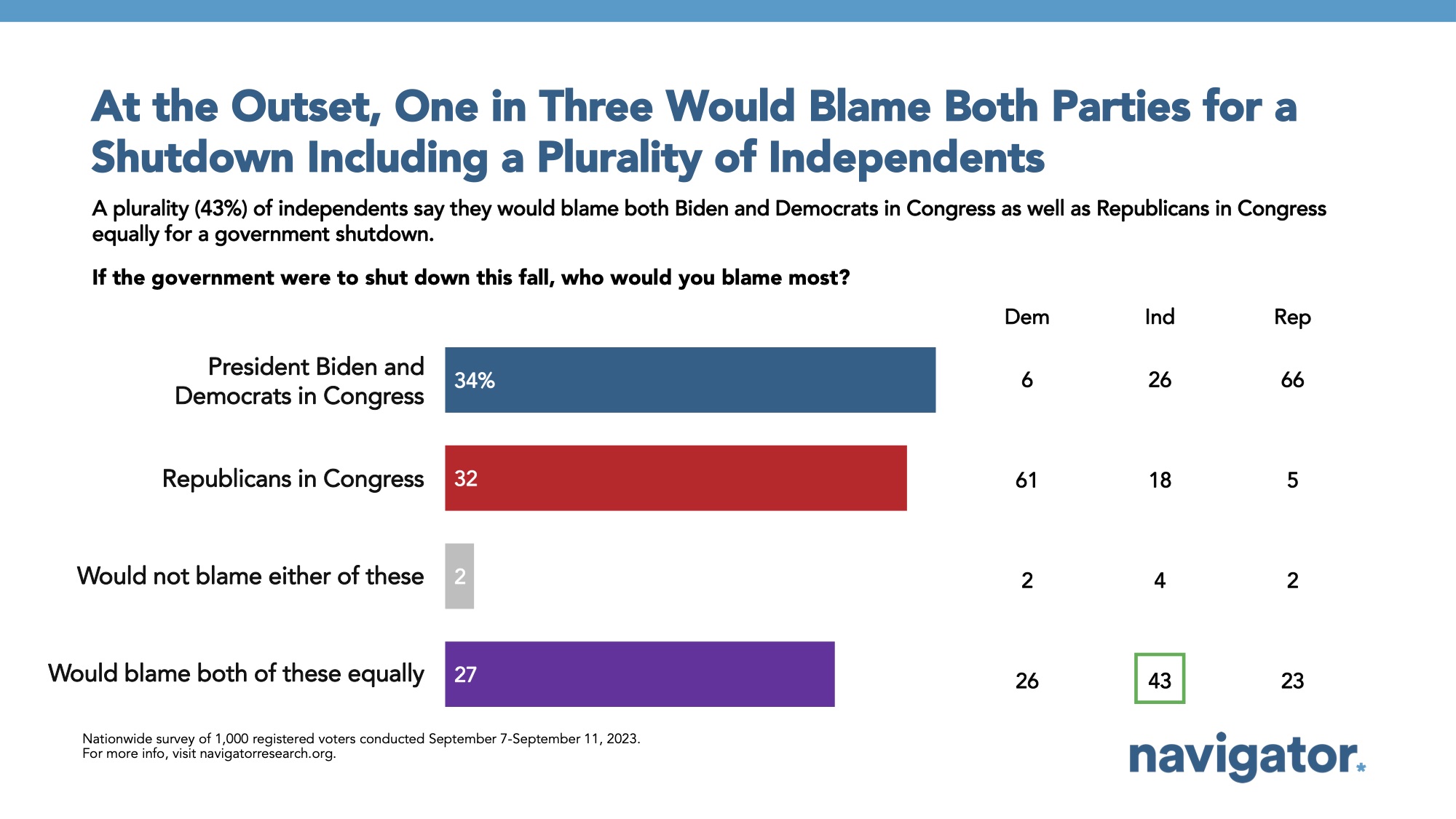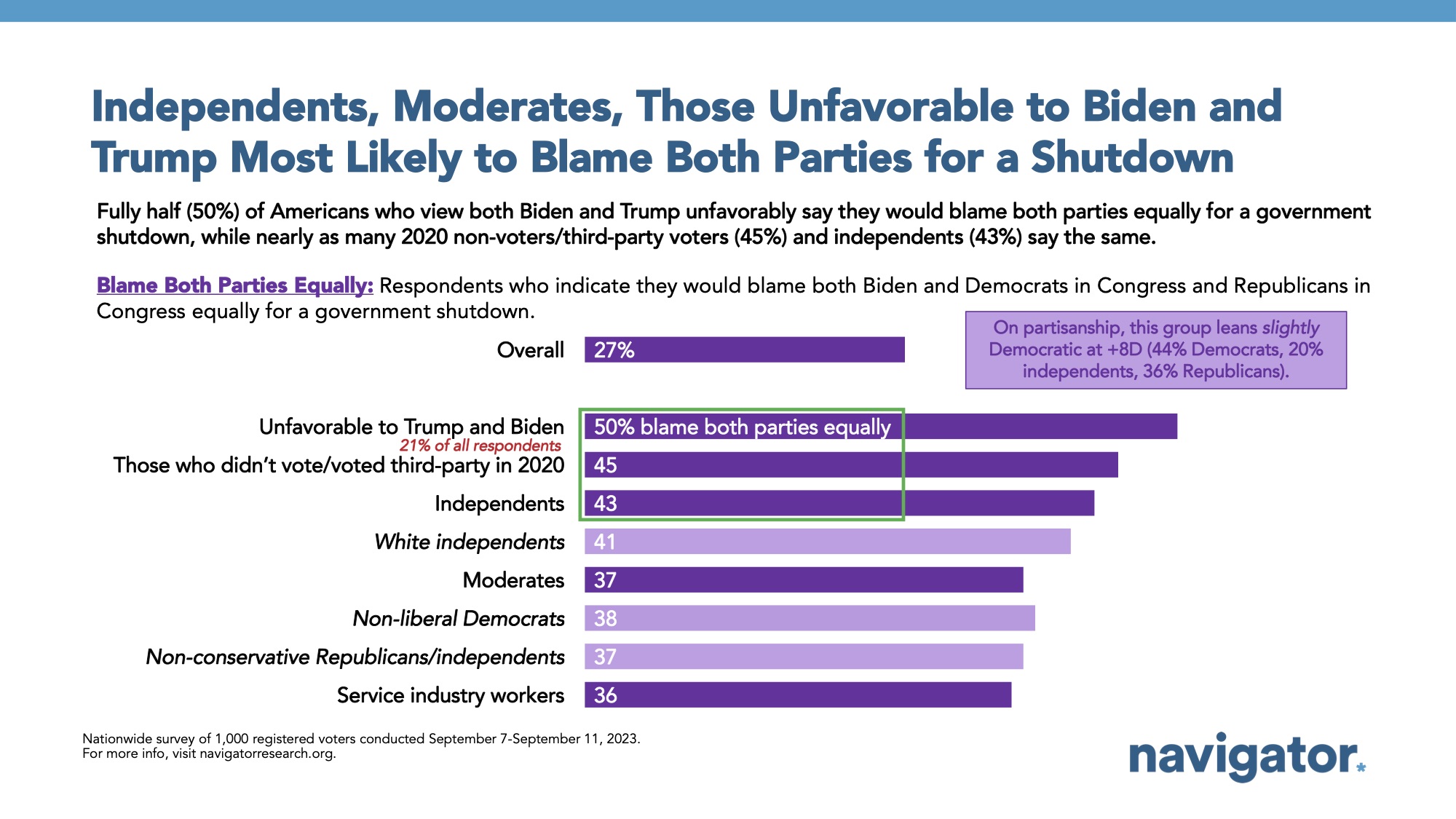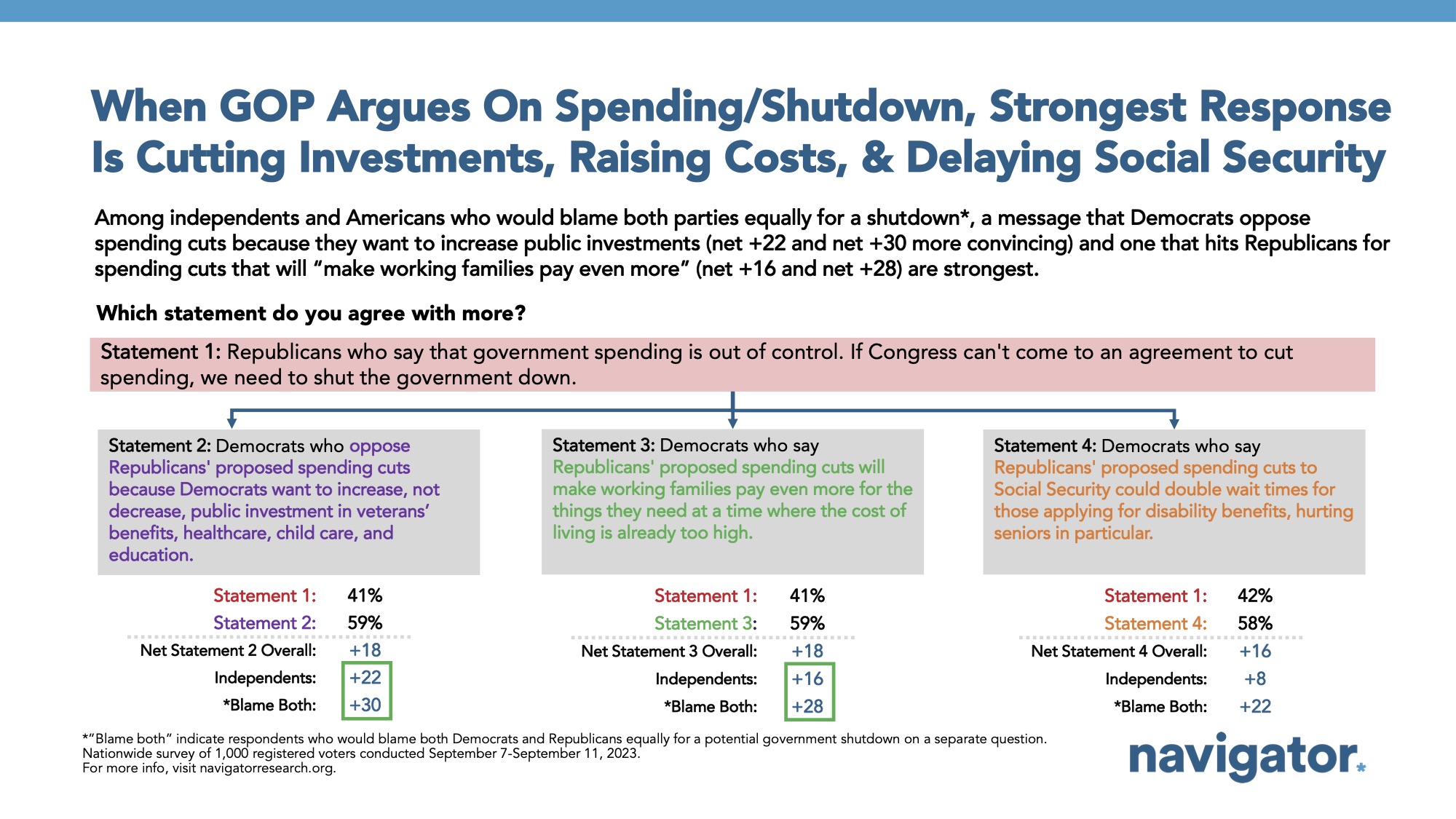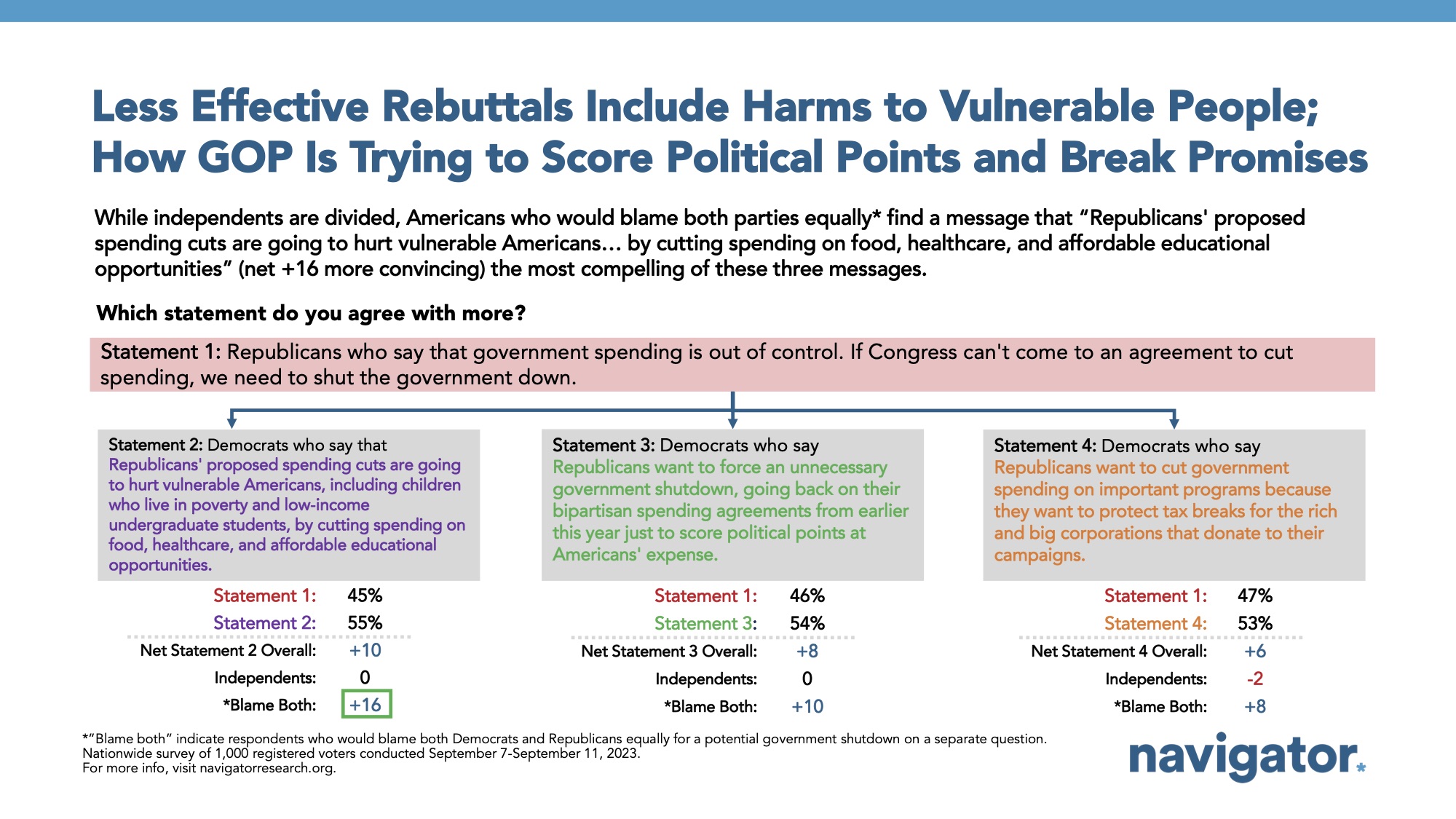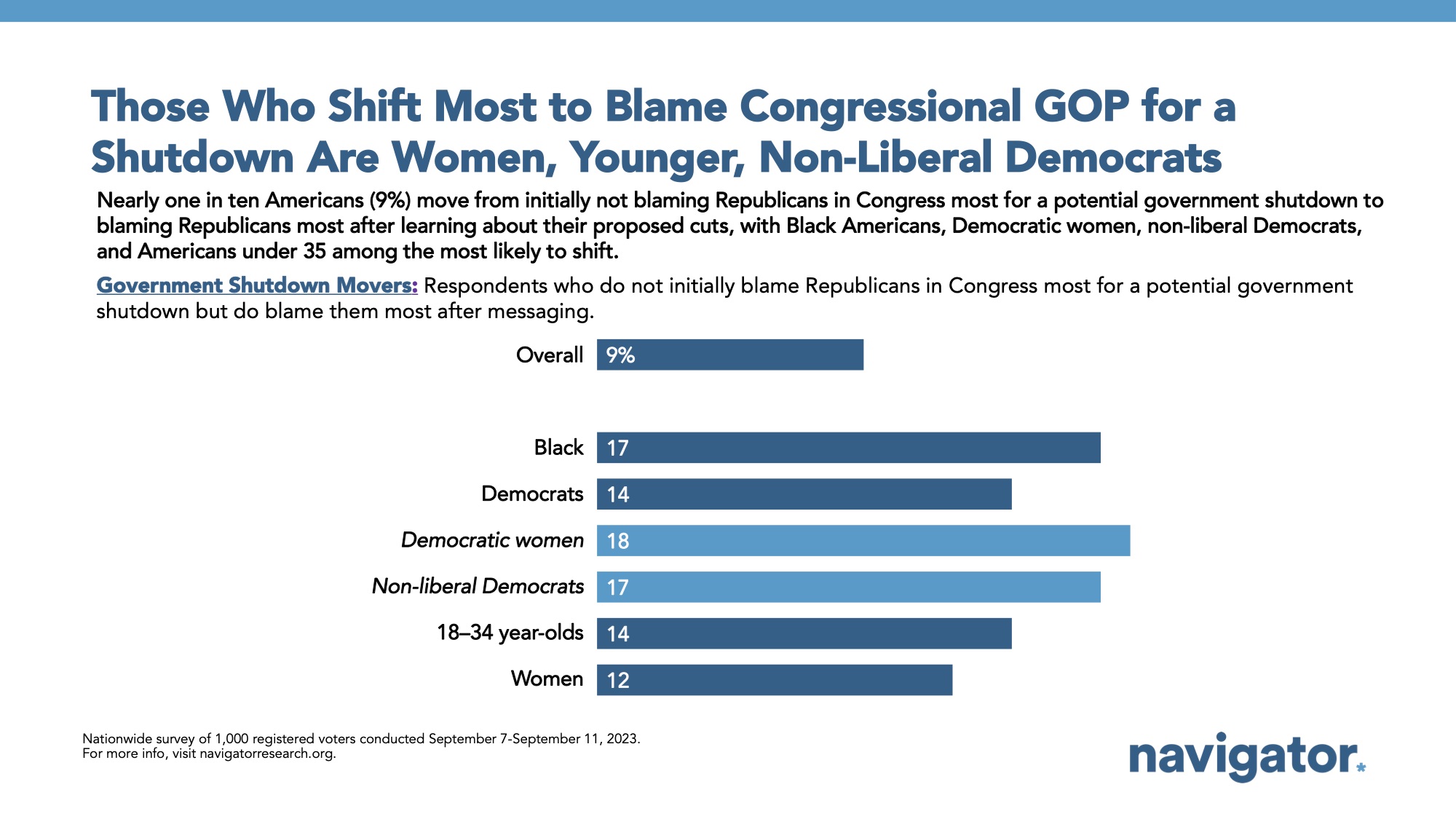Poll: Bipartisan Opposition to Republicans Forcing a Government Shutdown
This Navigator Research report contains polling data on Americans’ latest attitudes towards a potential government shutdown, including who the public is most likely to blame if one occurs, the top concerns Americans have about the impact of a potential shutdown, and the most effective messages against Republican proposed spending cuts.
With a potential government shutdown looming, three in four Americans say a shutdown would hurt the economy.
77 percent of Americans believe a government shutdown this fall would hurt the economy, including a plurality who say it would hurt the economy “a lot” (45 percent). Americans across partisanship believe a shutdown would impact the economy negatively, including more than four in five Democrats (85 percent), three in four independents (74 percent), seven in ten Republicans (71 percent), as well as 83 percent of “economically persuadable” Americans––those who rate the economy negatively, but are supportive of President Biden’s Inflation Reduction Act.
- While an overwhelming majority worry about the consequences of a shutdown, just about half of Americans have seen, read, or heard about a potential government shutdown (47 percent), including 11 percent who say they have heard “a lot” about it. The share who have heard about a potential shutdown has increased 8 points since July, when 39 percent said they had heard about a potential shutdown.
However, Americans start off split on who they would blame most if the government were to shut down.
In an initial ask, Americans are largely split on who they would blame if the government were to shut down this fall: a third say Biden and Democrats in Congress (34 percent), a similar share blame Republicans in Congress (32 percent), and 27 percent say they would blame both equally. Americans who are most likely to blame both Democrats and Republicans for a shutdown—who have a partisan identification distribution of 44 percent Democratic, 36 percent Republican, and 20 percent who are independents—are more unfavorable toward both former President Trump and President Biden, more likely to have not voted in 2020 or voted for a third party, and identify as independents.
Republican-proposed cuts are deeply unpopular, especially those aimed at Social Security, nutrition assistance, education, clean water, and medical research funding.
At least three in four Americans oppose proposed cuts by Republicans including “cuts to the Social Security Administration, which could double wait times for those applying for disability benefits” (net -63; 14 percent support – 77 percent oppose), “cuts to nutrition assistance for children and vulnerable families, taking food out of the mouths of women and children” (net -61; 15 percent support – 76 percent oppose), “cuts to investments in life-saving medical research for children, cancer patients, and maternal health” (net -61; 14 percent support – 75 percent oppose), “cuts to funding to provide safe and clean drinking water and to protect children from lead poisoning” (net -59; 16 percent support – 75 percent oppose), and “cuts to K-12 education, impacting 26 million students and forcing cuts of over 200,000 teachers, aides, and other school professionals” (net -58; 17 percent support – 75 percent oppose).
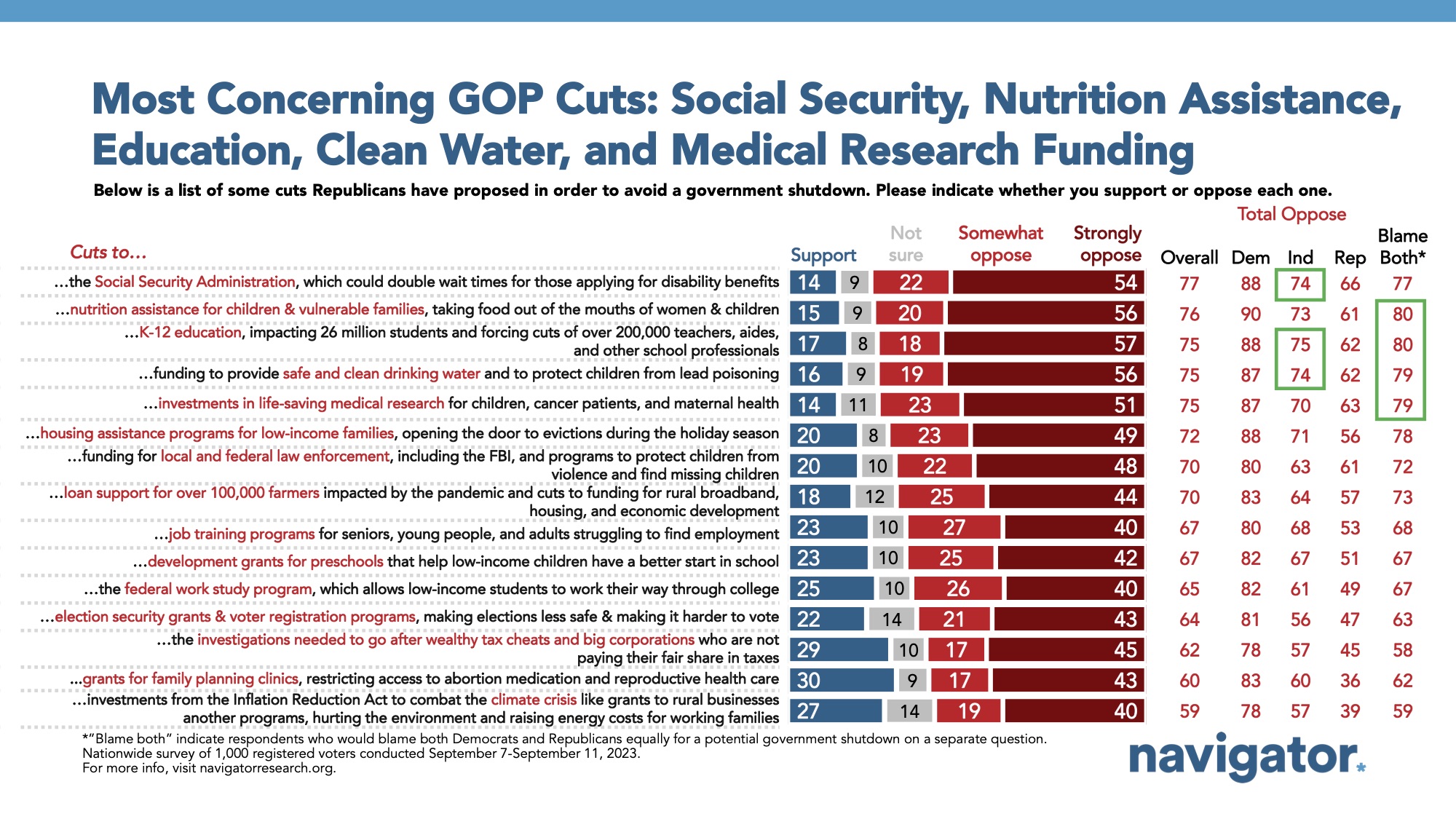
The most effective message against Republicans forcing a shutdown over spending cuts centers on protecting hard-working families and Social Security, veterans’ benefits, child care, and education.
Against a conservative argument that “that government spending is out of control. If Congress can’t come to an agreement to cut spending, we need to shut the government down,” the most effective rebuttal focused on the negative impact of spending cuts on families: “Republicans’ proposed spending cuts will make working families pay even more for the things they need at a time where the cost of living is already too high” (net +18; 59 percent progressive argument – 41 percent conservative argument). Among those who initially say they would blame both Democrats and Republicans equally for a shut down, they agree more with the argument that these spending cuts would make working families pay even more when the cost of living is too high by 28 points (64 percent progressive argument – 36 percent conservative argument). Other top-testing progressive rebuttals against this same conservative argument include:
- Republicans’ proposed spending cuts because Democrats want to increase, not decrease, public investment in veterans’ benefits, healthcare, child care, and education (overall by an 18-point margin; 59 percent progressive argument – 41 percent conservative argument, and by a 30-point margin among those who would blame both parties equally, 65 percent progressive argument – 35 percent conservative argument); and,
- Republicans’ proposed spending cuts to Social Security could double wait times for those applying for disability benefits, hurting seniors in particular (overall by a 16-point margin, 58 percent progressive argument – 42 percent conservative argument, and by a 22-point margin among those who would blame both parties equally, 61 percent progressive argument – 39 percent conservative argument).
Following messaging on Republican proposed cuts in order to avoid a shutdown, blame shifts toward Congressional Republicans.
Americans shift a net 10 points toward blaming Republicans for a shutdown following messaging (net -8; 31 percent Biden/Democrats – 39 percent Republicans). Making these arguments consolidate blame to Republicans among more progressive-leaning constituencies like Black voters, non-liberal Democrats, Democratic women, and Americans under the age of 35.
About The Study
Global Strategy Group conducted public opinion surveys among a sample of 1,000 registered voters from September 7-September 11, 2023. 99 additional interviews were conducted among Hispanic voters. 73 additional interviews were conducted among Asian American and Pacific Islander voters. 105 additional interviews were conducted among African American voters. 99 additional interviews were conducted among independent voters. The survey was conducted online, recruiting respondents from an opt-in online panel vendor. Respondents were verified against a voter file and special care was taken to ensure the demographic composition of our sample matched that of the national registered voter population across a variety of demographic variables.
